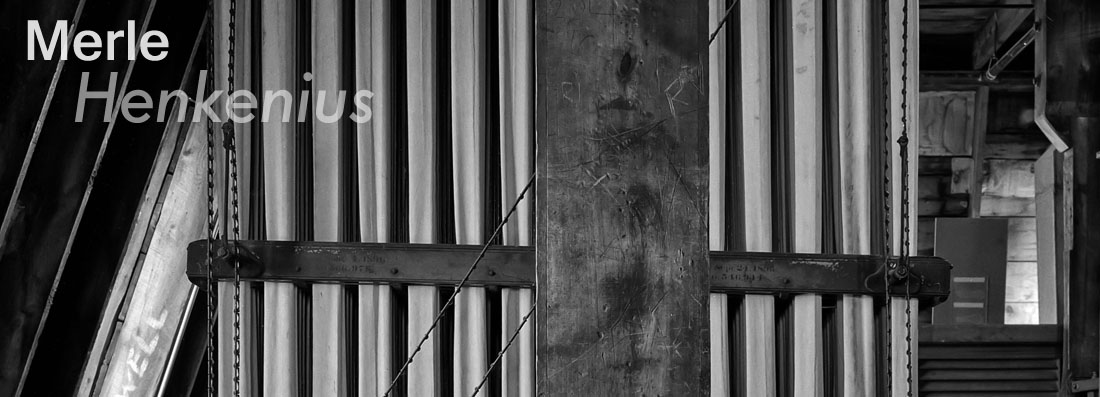page 19 of 20
(Postlude)
Mediations on Going Home
The thing about going home is that it’s generally more about returning than home. In fact, home doesn’t even need to be there. The upstairs bedroom with the slanting ceiling becomes a cloverleaf in a cross-town freeway. The jutting farmstead, once the well-examined center of a universe, is swept away by center-pivot irrigation. These things happen all the time. No matter. We’ll stand where home used to be, and with one hand shading our eyes and the other folded against a hip, project our sovereign keepsakes onto space. Home can be found when it’s less than a vestige, so it’s really more about you than there, even if that seems immodest. And there’s a coda to this story: the emotion in the return will be somehow commensurate with the fever in the departure. It’s a thing you hold close, like a hedged bet.
—
Out here, there’s no separating landscape from memory, or for that matter, anything joined in the malleable years. The corn in the field, the dust on the brome, the grader ditch with badger holes, the ashtray loaded with breath mints and bullets, the wire gate latch, braided palms, chicken dust like talcum, the water jug in the shade of a post, the bent bolt in a drawbar, the retread letting go, the windrow in your greased hair from the comb with the missing teeth, the smell of iron from dehorning, the layered bouquet of hay and diesel, the salt block you dared to lick, the thumb print on your sandwich—these aggregate to nothing, but they’ll be welded together until your heart stops, maybe 30 seconds more. As you devolve into light, will you hear angels, or the hit and miss arrhythmia of an idling John Deere “B”? Sweet sounds, either way.
If we’re not for this world, we’re irrevocably from it. It’s in us, and should be. We’re here to see and perceive, or we’re not here. Never were.
“The paradox of the human condition is that we can have the experience but miss the meaning.” T.S. Elliot
Some experiences need to be seen cleanly, if not those in the arena of first principles, then at least a few of the smaller things. There’s the high school football field, for example, with its inflated accounting and souvenir limp, its lost potential and 4-F, its ancient ambivalence. Forty years on, it’s best viewed from the 50 yard line, mid-afternoon, off-season. You gaze downhill from the field’s crown, which you don’t recall being there, to the home-team bench. There, pacing, is an apparition in a narrow tie, shouting, “Merle! Merle! That-was-your-guy! Criminy!” No easy job, his; you want your starters smarter, and while you’re at it, with better hands. Lucky I could run and hit. You run for love, more than to win, for that huddle at the end. Winners are of a type, you tune them out in barber shops. I’ve heard they never quit, and that quitters never win.
But now those old Fairlanes and Biscaynes have encircled the field, some with popcorn from home. They start up and shut down, run just long enough to kill the chill. It’s one last game they want. And you? You imagine that if you could just make the corner and cut, maybe catch a linebacker standing up, that you’d sail down the sideline with half the horns honking. There’d be no end-zone dance, no begging adulation, but car horns, un-tuned and atonal, with a trailing grace note or two. Loping back, guys would slap your helmet, and without being overly obvious, you’d scan the line for the family sedan and the stands for a burgundy coat. Football! It must be as close as grace ever gets to boorishness.
And what of those frozen winter nights, chasing jackrabbits around stubble fields in an unlicensed beater, its battery borrowed from a tractor, its heater smelling mousy, tires so thin that the air shows through. You aim your rifle through an open window as the beater bounces and skids. This car has no memory of shock absorbers, so it slams your head against the window frame, as someone shouts, “Git ‘em, git ’em! Jeeeezez!”
Jackrabbits are confident, not like cottontails, which squirt through portholes and vanish. Jackrabbits tease. They speed up and slow down, cant sideways, prong like antelope. With dark freedom all around them, they veer only to the edges of the headlight beams. They’re dumb as rocks, same as you. This a double date, a perfect mix of guns and girls, while the moon threw blue, fence-post shadows on the snow. Sell the stiff bunnies in your trunk to the mink farmer, 75 cents apiece. It’s gas money, unless you back up to the tractor barrel again, tax free. Then it’s a movie. Here was rabbit hunting in the Age of Aquarius, a decidedly low-yield affair.
